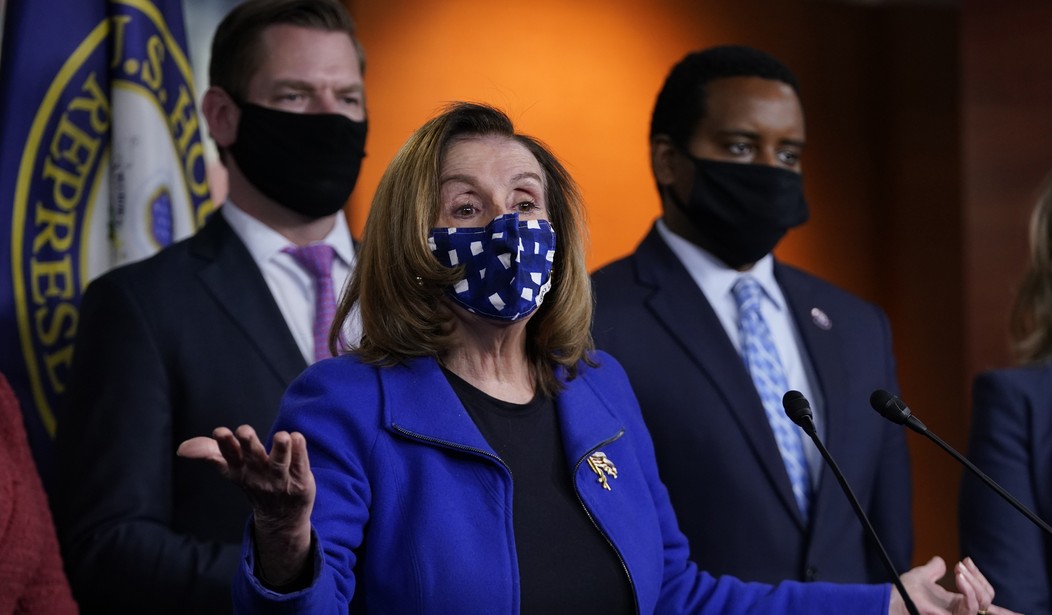H.R. 1, the "For the People Act," is a blatant attempt by Speaker Pelosi and Democrats to concentrate power in the hands of the federal government and separate the American people from democracy. I led the charge against H.R. 1 last Congress, and I will continue to fight the passage of this unconstitutional bill.
One of the reasons I remain adamantly opposed to H.R. 1 is that it nationalizes bad election laws, stripping states of the right to run their own elections. It expands mail-in voting, removes the requirement for a witness signature on absentee ballots, and prohibits voter ID laws. It also allows residents to vote in any precinct and forces states to adopt same-day voter registration. This direct attack on our states will destroy the precinct system and make our elections more chaotic and less secure.
There is another, more fundamental reason I oppose H.R. 1. This bill is designed to discourage participation in our democratic process. By placing spending caps on all organizations seeking to influence the outcome of an election and by broadening the definition of an “election-related” communication, H.R. 1 severely limits engagement by citizens and organizations in our democracy.
H.R. 1 expands the definition of an election-related communication, opening the door for bureaucrats in Washington—using arbitrary and vague standards—to label any political speech they dislike as election-related. This will unleash the Federal Election Commission to police more speech across more platforms, putting more power in the hands of the Federal government and discouraging Americans from participating in political debate and advocacy in the public square.
Our Founders never imagined that bureaucrats in Washington D.C. would have the power to tell a farmer in Tennessee where they can and can’t plant their crops and how much rainwater they can collect. Yet laws like H.R. 1, by their very design, are written to disenfranchise Americans and cede their voices to powerful politicians and unelected bureaucrats in Washington.
Recommended
America has always had a thriving civil society, whether through churches, hospitals, schools, sports, or trade associations. To this day, many of these associations are the centers of important political activity and advocacy. H.R. 1’s sweeping regulation of political activities and speech will scare many of these organizations into silence, inevitably leading to a decline in civic engagement, community participation, and advocacy for worthy causes.
We know that declining participation in democracy will have devastating effects on our country. It will lead to less community and more isolation, and it will remove an important buffer between people and the government. Isn’t this exactly what Democrats want?
Big government is threatened by checks on its authority, whether that is a civic association or local government. There is no more effective way for big government to gain and maintain power than by isolating citizens so that they don’t come together. That’s why Democrats’ H.R. 1 pushes Americans out of the public square and tells them to stay home. Speaker Pelosi knows that people are far easier to control isolated and alone.
Our Founders built this nation for a freedom-loving people, an active citizenry that can’t stomach concentrated power. Though our government was created by and for the people, H.R. 1 will increase the power of politicians in Washington and further polarize our nation. Without the important political dialogue that makes our country great, both parties will be driven further from the center, pushing the possibility of unity completely out of reach.
I have often said that the “For the People Act” is really for the politicians. Discouraging civic engagement doesn’t serve the interests of the people, it serves the interests of the Democratic Party. The truth is this: all Speaker Pelosi and her party want is power, and they will do whatever they can to get it.
Rep. Mark Green is a physician and combat veteran of Afghanistan and Iraq. He served on the mission to capture Saddam Hussein, and he interviewed Saddam Hussein for six hours on the night of his capture. He serves on the House Armed Services and Foreign Affairs Committees.
























Join the conversation as a VIP Member